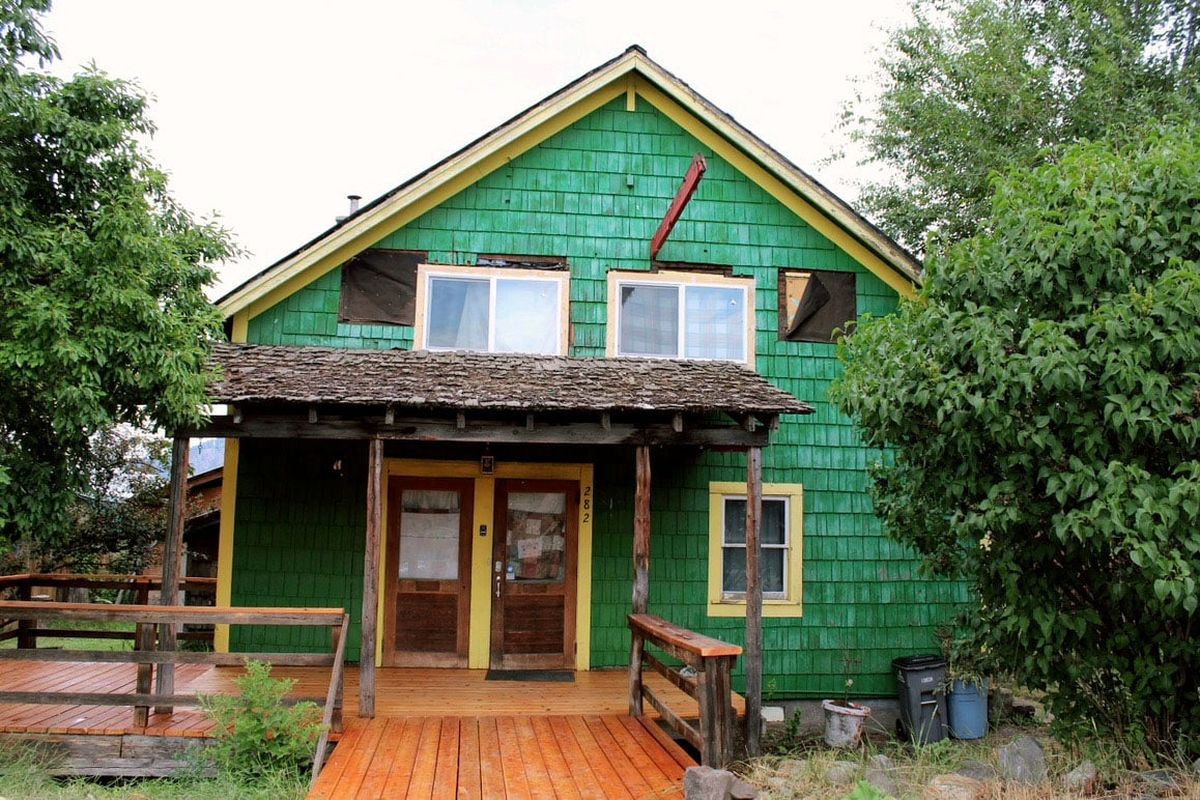Nonprofits aim to provide Stevens County housing for people in recovery, as part of home stability initiative

COLVILLE – Three years ago, Teresa Lang began a daily count of the number of homeless people who visit the Colville nonprofit where she works .
One day, the count was 15, and the next it was 40.
Lang believes there’s a simple explanation.
“There’s no housing,” she said.
The nonprofit Hope Street, founded by Barry Bacon, has been taking matters into its own hands. For the past two years, it has been working on a housing project called Bridges of Hope. This initiative will soon provide clean and sober housing for homeless men in Colville, with completion expected before winter’s start.
“I was homeless and I had a job,” said Lang, director of Hope Street. “COVID came, and the house was sold that I was living in, and I didn’t have anywhere to go, and no one was renting.
“… And, I mean, you probably see this, it’s like, there’s my daughter who lives with me. She’s 29, and my granddaughter, she can’t even go look for a house that’s $1,200 or $1,000 without having triple the income. There’s no way that people can even afford that.”
Hope Street has been an important staple for the growing homeless population in Colville as many stop into the nonprofit, sometimes daily, for food, showers and, most recently, to get away from the blazing heat.
Now, Bacon says his nonprofit, other organizations, mental health advocates and the Northeast Tri-County Health District are coming together to address three issues: the housing crisis, the “revolving door” of jail and the mental health and addiction crises. The groups have directed their attention to building housing for people in recovery.
“We feel that we can create a faith-based recovery residence for men and another one for women, and that those will help to change outcomes for people long term,” Bacon said. “And they could come from any of those directions, people that are exiting the jail, if they’re willing to go through a rehab program and connect with peer support and a care navigator and get on medications if it’s appropriate or not.”
Bridges of Hope will be able to house 10 men, each paying $1,000 a month. This includes rent, utilities, the program’s cost to provide resources and a comfortable living space, as each individual continues their journey to recovery.
Justin Smith, who Bacon feels could benefit from living in recovery housing, said he’s been navigating homelessness in Colville for the past three years, going through treatment facilities and hospitals for substance abuse.
However, it wasn’t always like that for him.
“I had a pretty good family,” he said. “I was married, had a wife and five boys and a baby girl, and we started drifting apart, going our own way, and eventually we split up, July 1, 2020.”
Smith said he’s sober, going to church and donating his time when he can to help other people in need. He hopes the recovery housing is something that could help him fully get back on his feet.
“It’s something to look forward to once, you know, they get that going,” Smith said.
Of Colville’s population, 18.5% live below the poverty line – higher than the national average of 12.5%, according to Data USA’s latest report in 2022. The largest demographic living in poverty is males, ages 65-74, followed by females, ages 6-11 and 55-64.
Hope Street is also working on recovery housing for women. The women’s recovery housing, which is named Patrick’s Place, will follow the same concept the nonprofit has established for men.
“People, men and women, could live in these individual houses for, you know, a year or, in some cases, maybe a bit more,” Bacon said, “because we still have to create the next step, which is, you know, individual housing, where people can live in sobriety, on their own after they’ve completed the program.”
Additionally, Catholic Charities is building a 71-unit housing community for families who earn less than 60% of the area’s median income.
Jonathan Mallahan, the chief housing officer for Catholic Charities, said the agency did a market study that identified a need for family housing. In conjunction with Rural Resources, a social services organization in Colville, Catholic Charities was able to propose housing for families.
“The rent is contingent on the family’s income,” Mallahan said. “So, the rent, if you’re in a unit, you’re generally not going to pay more than 30% of your income towards rent; that’s the general rule of thumb, and that changes. The unit rent can be also contingent on unit size and family size, so it’s adjusted based off of what is affordable to a family.”
Mallahan anticipates the units will be available in 15 months.
“The interesting thing is, it’s the homelessness, the visible homelessness that you see is just the surface of the challenge,” Mallahan said. “Family homelessness, often those are families that are living in their cars. Those are families that are doubled up on couches or in households with intergenerational households, where they’re living with parents or grandparents or both.
“So family homelessness is an even larger problem than the visible sort of street homelessness or single homelessness that we are more commonly observing on the streets.”